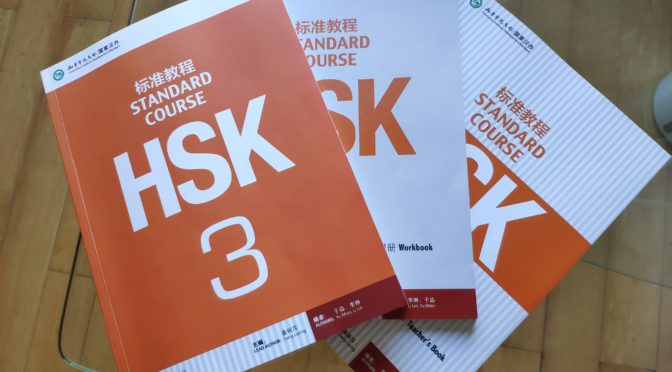Work is now back in full swing after the Spring Festival break, and that means the students are back in class and I have lots of work and travel to do. And that also means I have a daily schedule within which I can fit my Chinese studies.
You’ll recall a few months ago I posted about focusing on studying and learning Mandarin Chinese (using the simplified script) and that I had chosen to start at HSK 2. Through some fits and starts, I figured out how I could work my way through the books on my own without eh aid of a teacher. To be sure, there are some times when I need a native Chinese person to correct or look at what I’ve done, but only minimally since I also bought the teacher’s book that gives all of the answers.
The HSK 3 books differ a little bit from the previous level in that they remove the pinyin (the romanization of Chinese characters) from view. Though many would say these sentences are “easy”, it’s like giving a person who’s never seen English before a kid’s book and then expecting them to understand it.
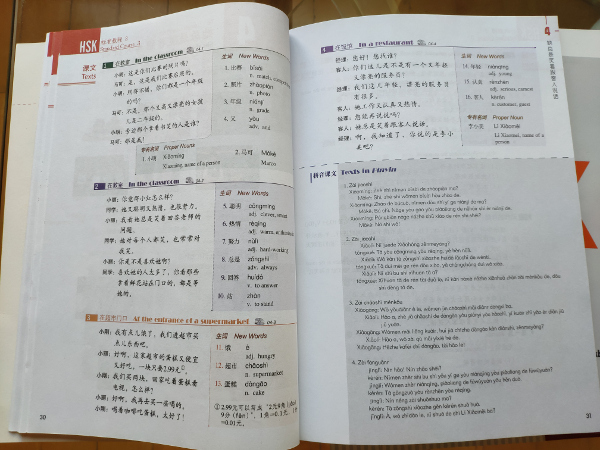
There are some exercises that are easy-ish, in that if you figure one or two of them out then you can usually figure the others out by process of elimination.
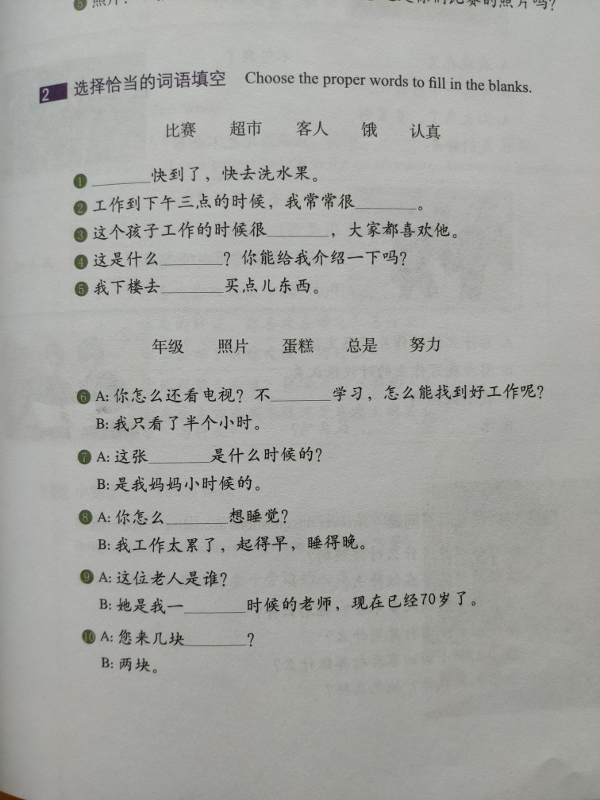
But then there are others where you’re expected to fill in the blanks based on the language points learned. And this can be difficult, especially if you don’t have a teacher, but also because there are no answer keys for this section in the Teacher’s Book, which is a little unfortunate.
So, since the book is mainly in Chinese characters, I’ve found it now takes me a little bit longer to work my way through each chapter, especially in regard to learning and understanding the grammar presented. I do try to work my way through the Teacher’s Book, reading what I can, so as to give myself more examples of how the grammar is to be used. Some of it I’m familiar with already but other stuff is new to me. You can see one of the grammar points that completely confused me (and still does):
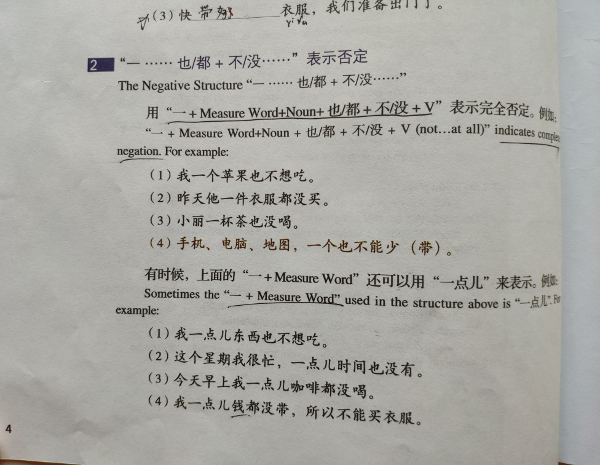
No idea.
The Workbook is a little bit different in that it builds upon what the Coursebook has introduced. It’s also structured like the HSK test itself. Again, some parts are easy, some parts are a little more difficult.
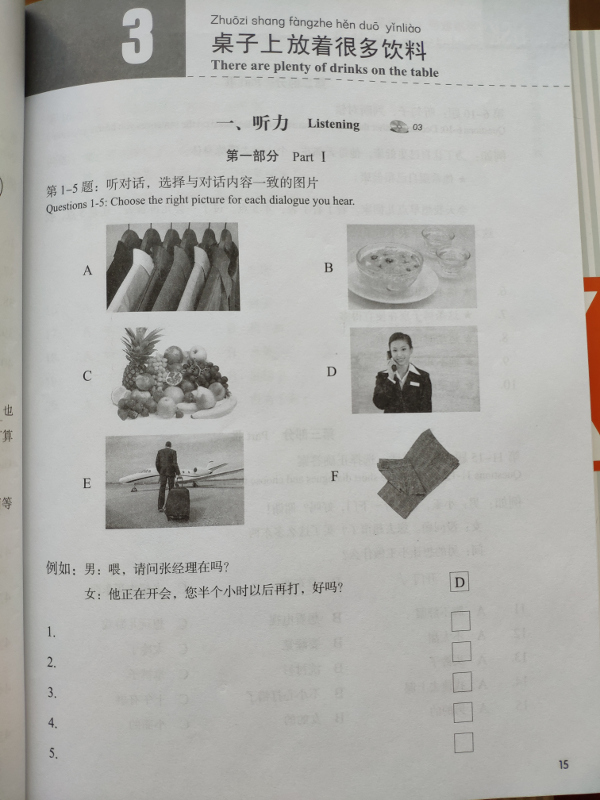
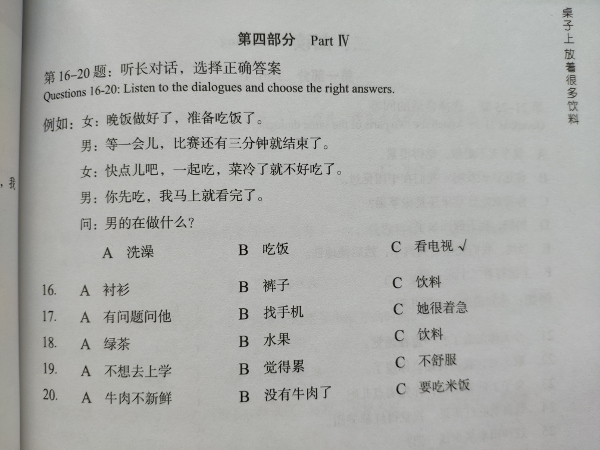
And then there’s parts where you have to re-arrange the sentence in the proper order. And if you haven’t understood the grammar points introduced, then you’ll probably have some difficulty with this section.
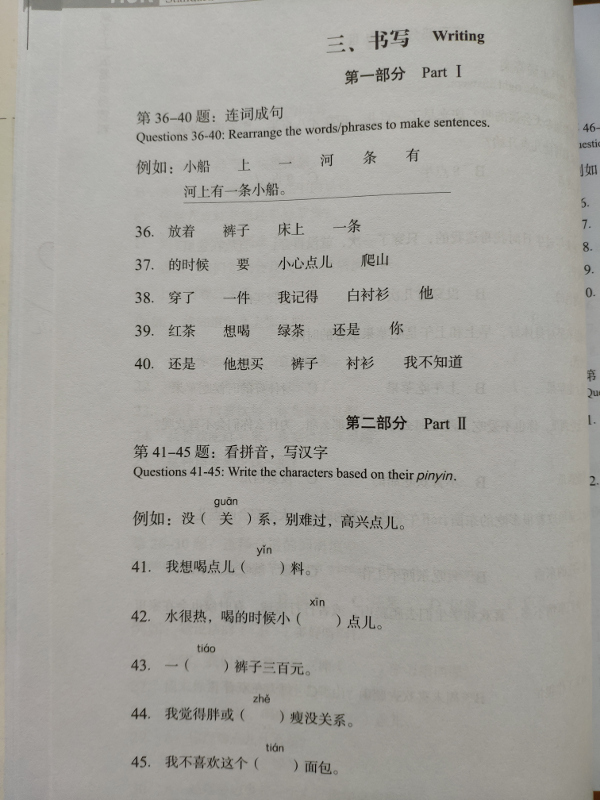
Although this structured approach to self-study is useful, it’s made a touch more difficult by the fact that we’re not allowed to have our cell phones with us while we’re at work for security purposes. This means I can only access the listening materials and my electronic dictionary during my breaks and makes it difficult to “squeeze in” some extra time to practice or study. I have been able to adapt my approach, however, in order to work around these constraints.
In all, a unit in the Coursebook takes me about 45-55 minutes while the Workbook units takes me an additional 50 minutes. So, already, I’ve doubled my hours per unit.
So why don’t you get a teacher?
For one, my schedule is kind of hectic which means I don’t always have time to meet up with a teacher, either online or in person. Further, I’ve had teachers before and they’re good for some things, like encouraging you when you have no motivation, but those lessons contained a lot of spoken Chinese which I found I was lacking in because I was lacking in so many other areas of the language. So, instead of focusing on speaking right now, I’m focusing on building vocabulary, learning some of the grammar, and reading the characters, all of which should enable me to speak better later on down the line when I do start focusing on spoken Chinese.
In addition to my HSK studies, however, I’ve added reading and listening to my attack. You’ll recall that I bought a bunch of books last year with the idea that I was going to power my way through them. Well, it didn’t work as well as expected though I have actually started to make my way through one of them:
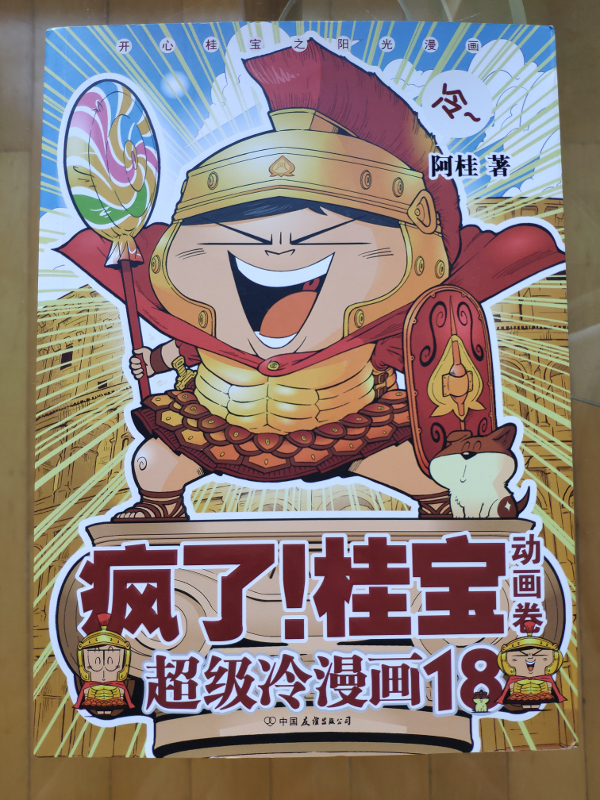
Interestingly enough, this edition of Kwai Boo starts with a story of them travelling to Rome. This struck me as particularly interesting because it was 10 years ago that I started my whole travelling around the world thing and, around the time I started this book, was the also the first time I had been to Rome some ten years before. I would have never thought I’d be working in China and studying Chinese ten years ago.
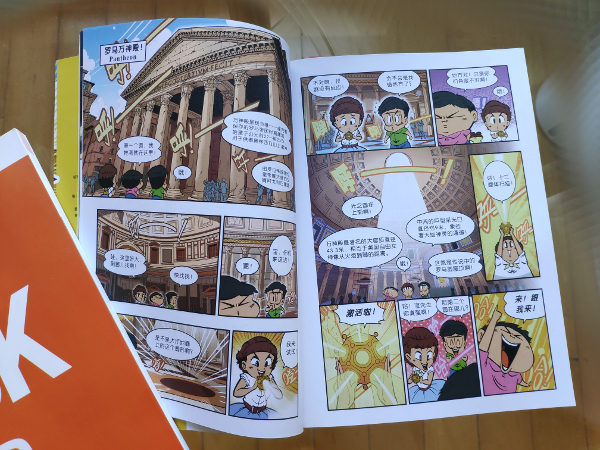
Does it take you a long time to read this? And do you understand it?
I read that for about 30-40 minutes per work day. Unlike my reading of Wei Cheng, however, I am actually translating Feng Le as I go, which means writing out the pinyin and then trying to make a decent translation of it all. This takes me back to all of those years I spent in university translating Latin and Ancient Greek.
As for how long it takes me, well, the first chapter took my a total of six hours to complete, but that included transliterating into pinyin, translating the words, and reviewing what I’ve done. The first chapter was 20 pages long and the whole book is about 200 pages long, so, roughly, it should take me 60 hours to finish the book. Hopefully I get faster as I go.
As for listening, I’ve started reading lyrics along with Chinese music. It started out with love songs (the easiest type of songs to find in China) but has now progressed into rap music, though they tend to mix quite a bit of English into their songs so I often skip through parts of the song.
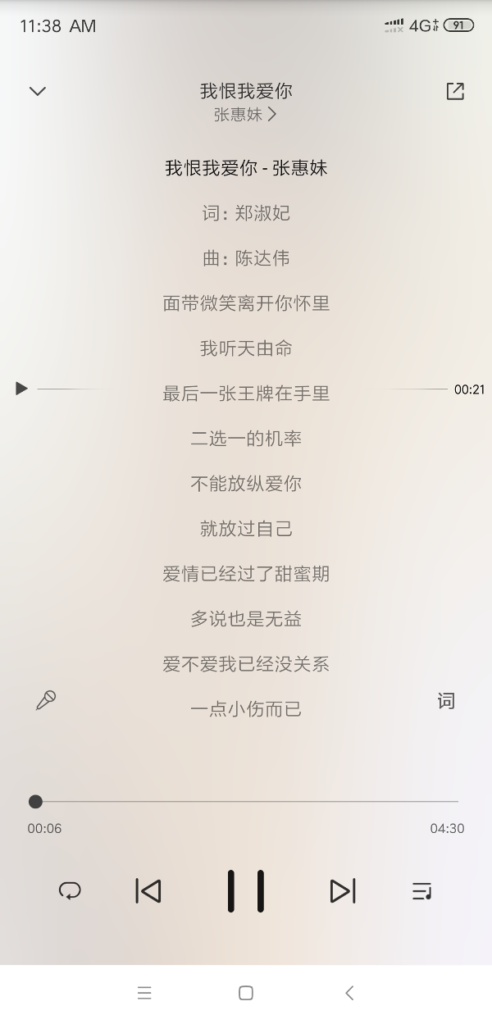
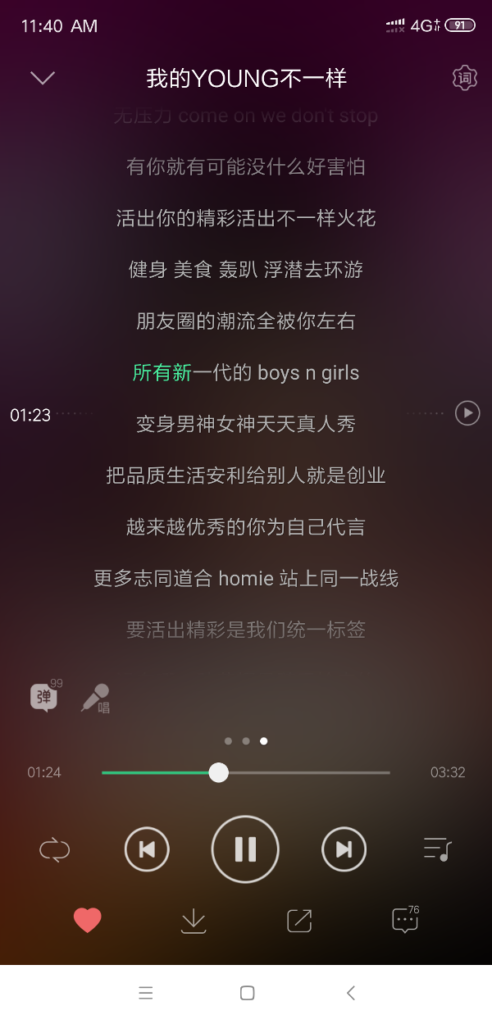
They’re actually not bad. Surprisingly, China offers up some interesting rap beats. Why is this? It’s actually because there was a TV show a few years back that had Chinese rappers facing off against each other in rap battles. The TV show was a huge hit and, can you guess what happened? The government stopped it and said “No more rap.” And so all of this rap is now “old skool 2017”.
Whatever the case, I try to listen and read along as much as I can as it’s “easy” in the sense it adds to my cumulative Chinese study hours (which I keep track with a spreadsheet). So, if I’m at the gym, instead of English or whatever music, I’m putting on Chinese rap, especially if I’m on the treadmill, and following along as I do my cardio (though not strength training).
What does this spreadsheet look like?
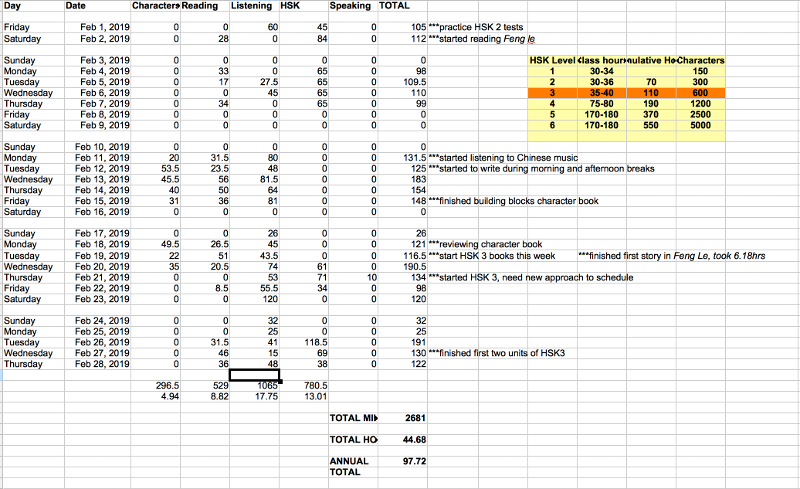
As you can see, I track as much as I can and have been taking notes on milestones, key dates, or the reason why the numbers are the way they are. You’ll also see that I generally take Saturdays and Sundays off, mostly because I have to take care of other, non-work related things on those days.
You’ll also notice that HSK 2 is only 300 characters and that HSK 3 is actually 600 characters, which is something I had gotten wrong in my previous post.
Did I take the HSK 2 test?
No. After talking to a few people, they all pretty much said I should only start taking the tests once I’ve gotten to a decent level of Chinese-ability, which means in the higher bands of the HSK levels. It also means that once I hit the HSK 4 books, I could start thinking of taking the test to see what it’s like. The test isn’t expensive, but it does require a time commitment.
Anyway, that’s the current concentration. At this rate of two hours per unit, I should be finished this current level’s books within 10 weeks, which is roughly the end of April. At that point, I’ll re-evalute where I am and what I should focus on. I may take some “time off” of studying HSK and, instead, work on speaking Chinese and reading/listening to materials other than study materials.
